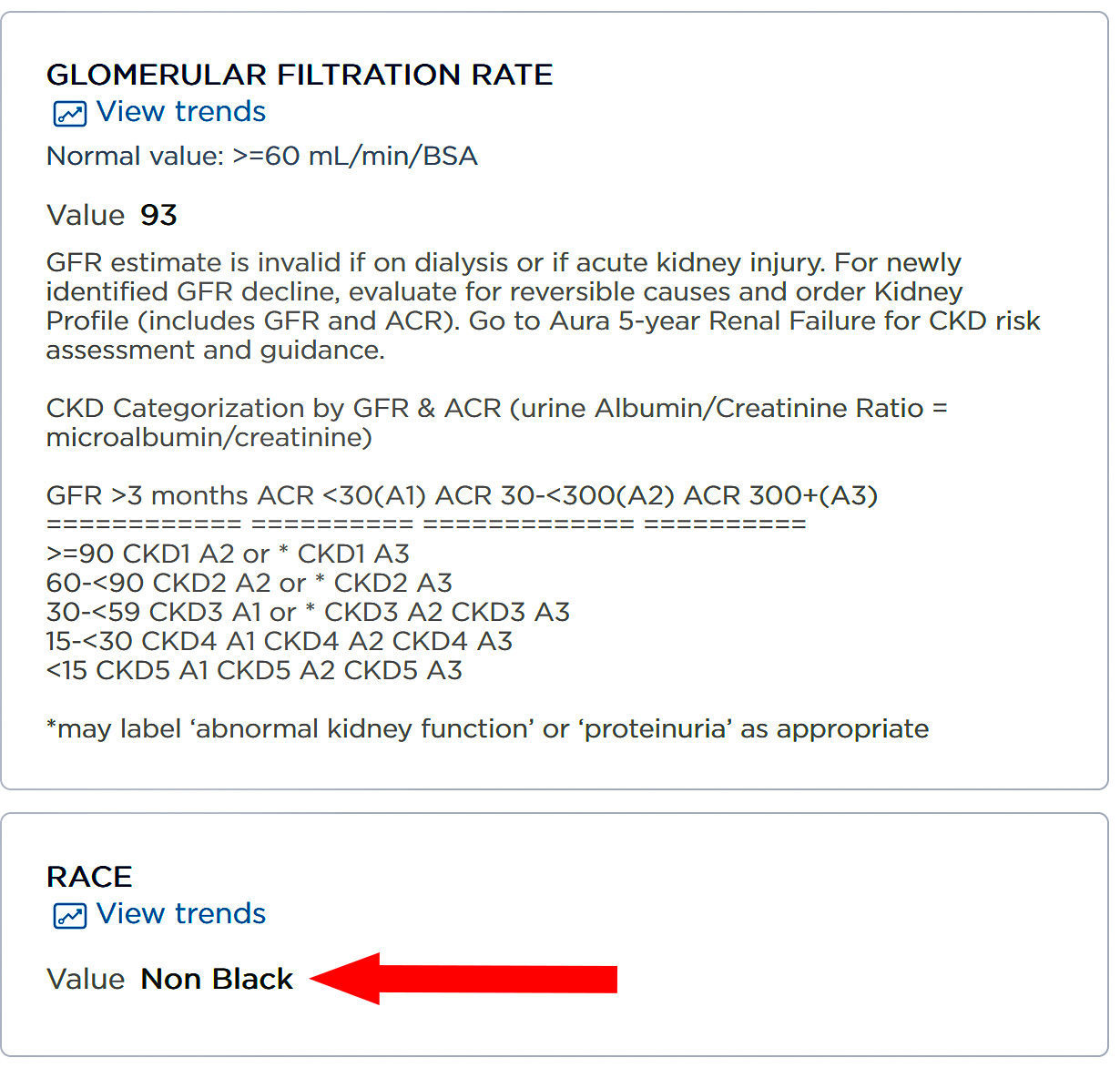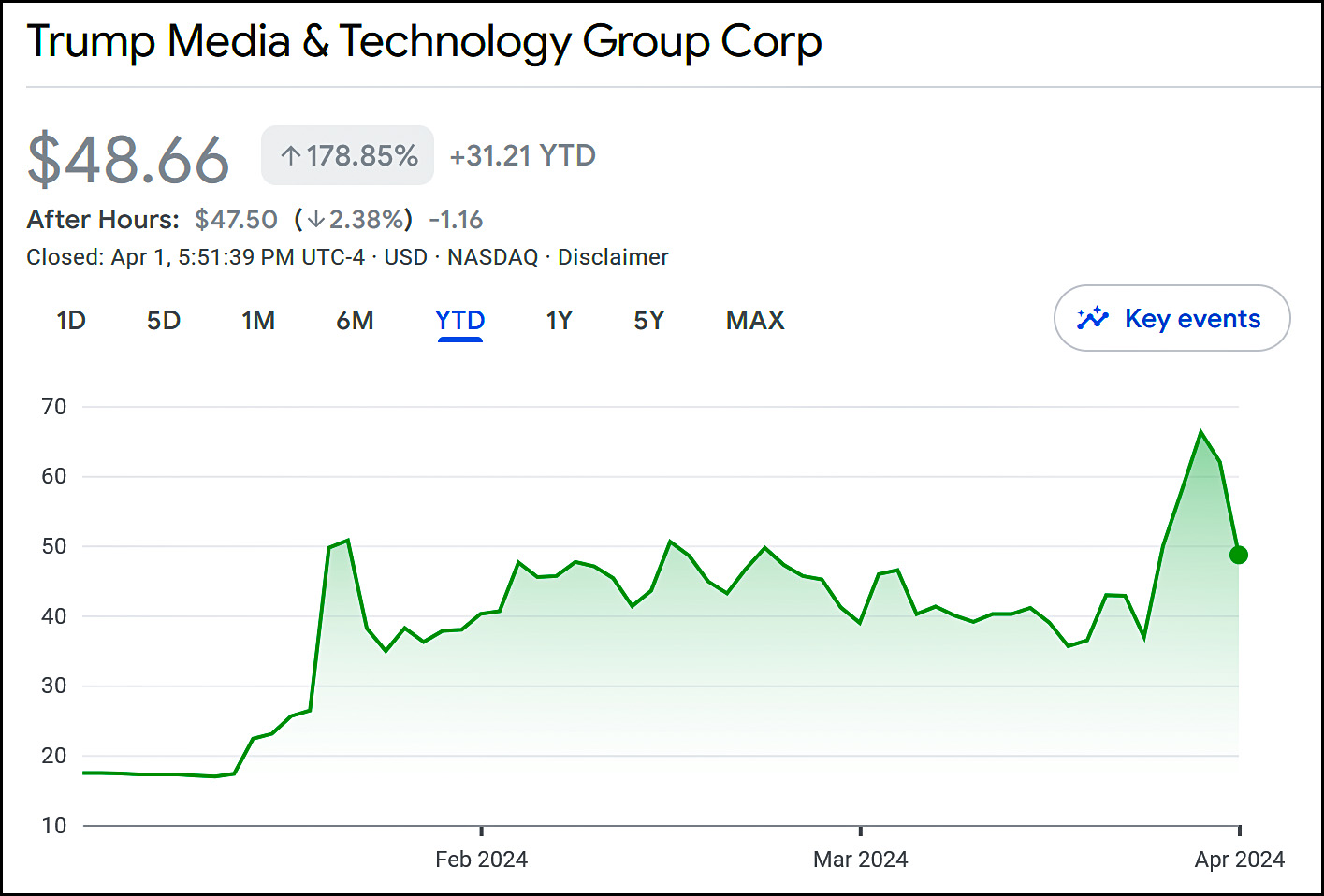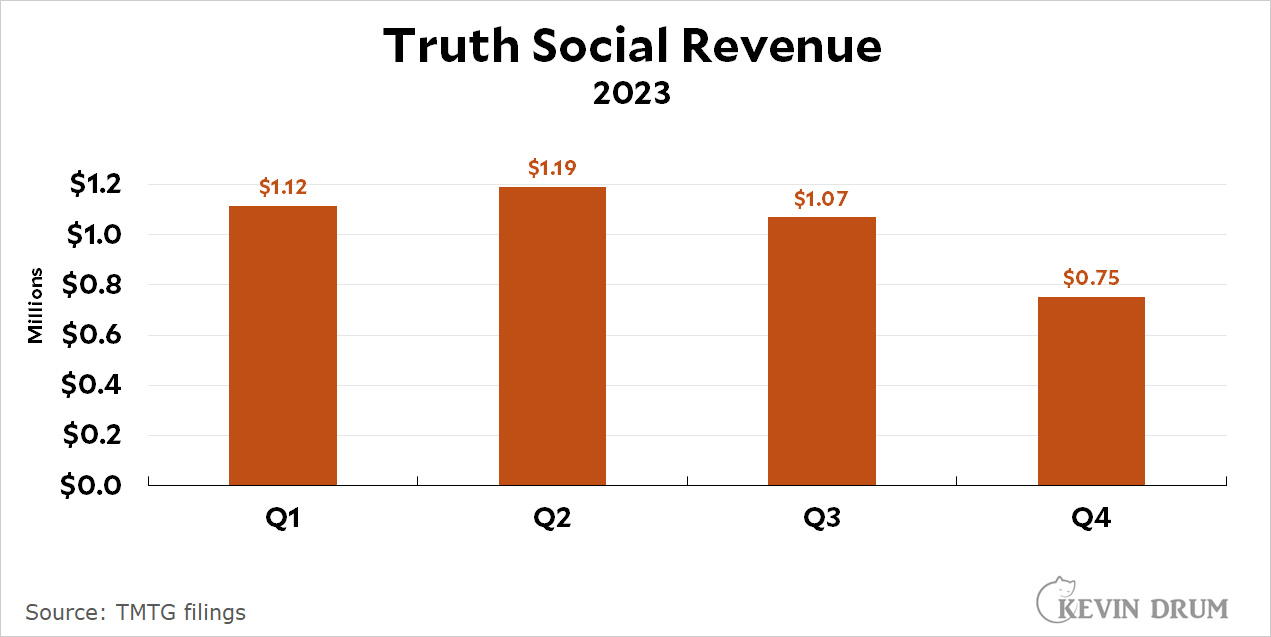Every month I get a big pile of blood tests. Here's one of them:
 This result happens to be from May 26, 2020. A year later the "Non Black" designation suddenly disappeared.
This result happens to be from May 26, 2020. A year later the "Non Black" designation suddenly disappeared.
Why? Well, there's now a note that says "GFR estimate is by the CKD-EPI 2021 equation." I never noticed that before, but today Atrios points to an AP article that explains a change to the standard measurement of GFR:
At issue is a once widely used test that overestimated how well Black people’s kidneys were functioning, making them look healthier than they really were — all because of an automated formula that calculated results for Black and non-Black patients differently. That race-based equation could delay diagnosis of organ failure and evaluation for a transplant, exacerbating other disparities that already make Black patients more at risk of needing a new kidney but less likely to get one.
A few years ago, the National Kidney Foundation and American Society of Nephrology prodded laboratories to switch to race-free equations in calculating kidney function. Then the U.S. organ transplant network ordered hospitals to use only race-neutral test results in adding new patients to the kidney waiting list.
This story leaves out a few things. First, it's true that an old GFR test used a racial adjustment that increased Black scores by 21% compared to whites. In 2009 some researchers reported on a new GFR test called CKD-EPI, but they didn't conclude that the old racial adjustment was wrong. They simply found that it should be reduced slightly from 1.21 to 1.16.
A later study with a larger sample concluded that CKD-EPI was a better predictor for practically everything compared to the old test, including kidney disease in Black patients.
But the race adjustment was still there, so a 2021 study looked at what would happen if it was removed entirely. After all, as the study authors said, "race in eGFR equations is a social and not a biologic construct." They set out to prove this, and found, unsurprisingly, that if you choose a single adjustment value in the middle for both Black and white patients, you'll end up pulling the Black results down and the white results up. This was said to be "more accurate" even though it actually performed slightly worse overall.
A 2021 study in Europe that had a large Black cohort agreed. It found that "the accuracy of the 2021 CKD-EPI equation was the lowest" of the ones tested. The authors concluded that a good argument for adopting the new test was to align Europe with the US. However, a good argument for not adopting it was that "the new equation does not perform better, but worse."
But the National Kidney Foundation had already forged ahead with a fresh look at GFR testing. Initially they were cautious:
When announcing the establishment of the task force eight months ago, NKF and ASN affirmed that race is a social, not a biological, construct, but recognized that simply dropping the race modifier could introduce different biases and disparities.
By September of 2021 they had made up their minds:
We recommend immediate implementation of the CKD-EPI creatinine equation refit without the race variable in all laboratories in the United States because (1) it does not include race in the calculation and reporting, (2) included diversity in its development, (3) is immediately available to all laboratories in the United States, (4) and has acceptable performance characteristics and potential consequences that do not disproportionately affect any one group of individuals.
It's notable that nothing in this statement suggests the race-free version of the test is actually more accurate. However, the new test does accomplish what it set out to do: it now overestimates kidney disease in Black people and underestimates it in white people. This means Black patients will get more kidneys and white patients will get fewer. It's very hard to conclude from the evidence that anything else was ever the goal here.






